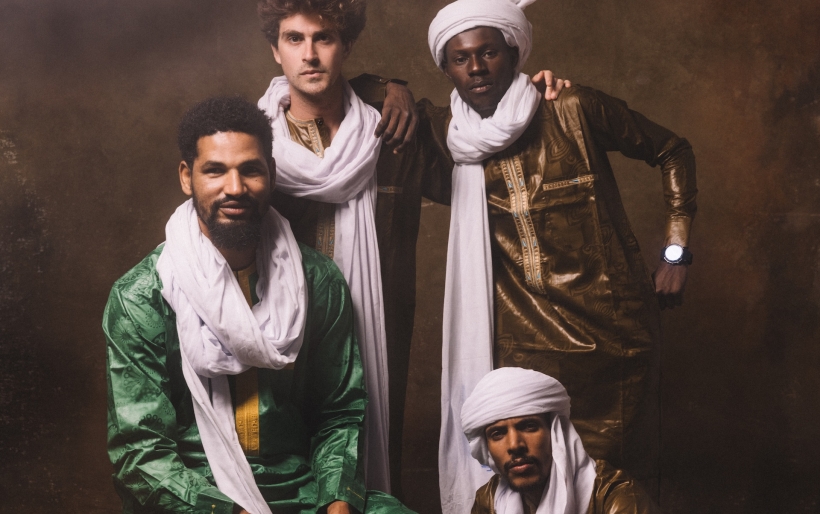The last time I saw Mdou Moctar was on July 19, 2023. In between albums and halfway through a lengthy U.S tour, Moctar and his band played a fiercely captivating set to a sold out Ardmore Music Hall, cycling between fiery highlights from their last two albums, 2019’s Ilana (The Creator) and 2021’s Afrique Victime. This celebratory string of performances would be cut short though, as just one week later on July 26, a coup was staged against Mohamed Bazoum, President of the band’s home country Niger. The coup left Mdou Moctar stranded in the U.S, unable to return home to begin work on their next record, and woefully unsure about the future.
It’s been almost a year since then. The coup culminated with France, who ruled Niger until their independence in 1960, relinquishing the last of their military bases in the country and lifting sanctions this past February. The band was allowed to return home, hot with declarations over the state of their nation. Now, Mdou Moctar has returned in full force with a new LP, aptly titled Funeral for Justice.
Crashing in with a momentous bang on the title track, Mdou Moctar amplifies his scorching distorted guitar, flying over the fretboard while Souleymane Ibrahim (drums) and Michael Coltun (bass) speed up their trademark West African rhythmic base, setting an overtly furious tone for the record. Translated from Mdou Moctar’s native language Tamasheq, the lyrics speak harshly and directly to the leaders of his country. “Dear African leaders, hear my burning question. Why does your ear only heed France and America? They misled you into giving up your lands. They delightfully watch you in your fraternal feud. They possess the power to help out but chose not to.” His aggravated verses only intensify throughout the song, guided by a flurry of guitar licks and breakneck drumming that irately reinforce the band’s dissatisfaction with their government.
Mdou Moctar’s music has protested Niger’s political instability since the band’s beginning. But on Funeral for Justice, Moctar digs in his heels, taking a staunch, direct approach spurred by the deterioration of his nation’s cultural pride. He extends this call for patriotism to his fellow Nigeriens on the follow-up track “Imohaur,” a grooving deep blues song that suddenly explodes into a heavy psychedelic jam led by Mdou’s Hendrix guided fretwork. “Imohaur” is the Tuareg equivalent to “brother” or “comrade,” Mdou explains in the recent music video for the song. “It’s a familial way to say ‘Tuareg people’ that expresses a shared bond as one united group.”
His subsequent lyrics once again read as a direct address to the people embroiled in hardship throughout Niger. “Imohaur, you know this indeed we have a written history. Written in books and the whole world knows it…turbans and camels, symbols of our legacy and pride…Imouhar, why are you abandoning your language Tamasheq? You stopped speaking it. You stopped writing it. Waking up one day our kids can’t speak Tamasheq…” The emotional pleas continue on “Imajighen” and “Sousoume Tamacheq,” proclaiming that the people of northwest Africa must put aside their perceived differences and instead fight to retain their cultural traditions. He contends that those from Mali, Libya, Mauritania, and Niger share both culture and language, touching on issues of colorism between the nations while urgently calling for unity among all Tamasheq speakers to prevent the evaporation of their culture.

